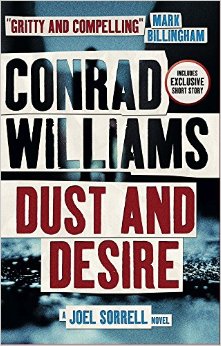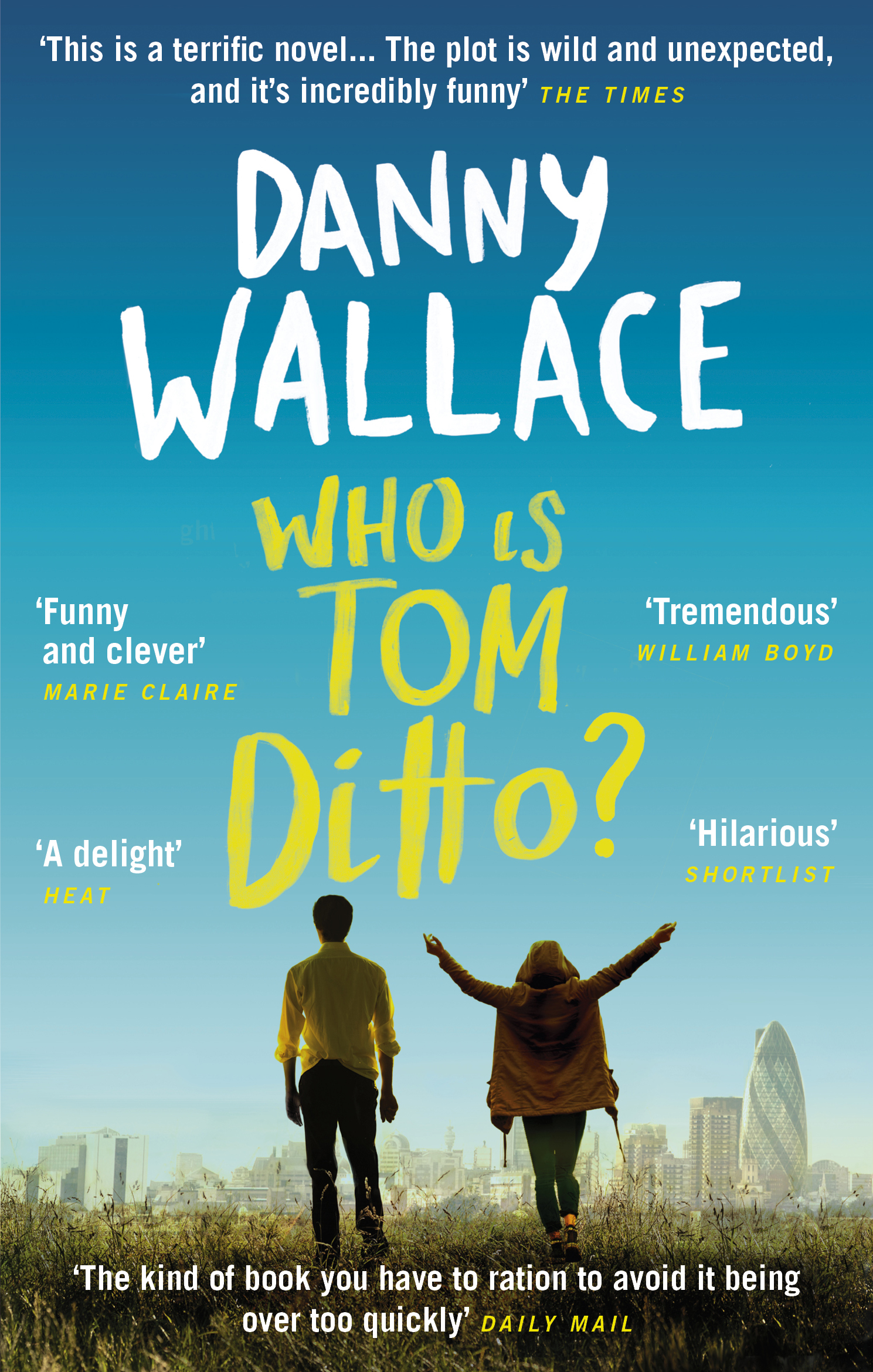You have no items in your cart. Want to get some nice things?
Go shopping

Nick Triplow, author of crime novel Frank’s Wild Years, deconstructs our Book Club pick, Russ Litten’s Swear Down, in which unreliable narrators and fractured storylines make for a very postmodern take on the detective story.
In his 2010 novel, Scream If You Want To Go Faster, Russ Litten introduced a cast of characters from his home city of Kingston upon Hull whose paths converge over the weekend of Hull Fair. The book’s unflinching portrayal of “10 ordinary lives” is shot through with a kind of Altmanesque naturalism and bleak humour. It paved the way for his second novel, Swear Down; a very modern tale of violent death on a Hackney Council estate and the two men who confess to the brutal murder of gang leader and drug dealer, Aaron Stewart.
On the face of it, Swear Down is something of a postmodern triumph: fractured storylines – check; multiple voices – check; dislocated characters – check. If that sounds like there’s a lot going on, it is testament to Litten’s skill as a storyteller that Swear Down is an accessible, engaging and ultimately thought-provoking novel that manages, along the way, to inject new life into some tired police procedural tropes.
Holding plot and possibility together is the highly plausible Detective Sergeant Peter Ndekwe. I shared a stage in Cleethorpes with Litten last year for Brit Grit, an evening of crime fiction discussion. Russ described the process of creating Ndekwe’s character and the detailed research required to ensure a faithful representation of police methods. It takes on a crucial significance here as the story swings, initially with equal conviction, between the two conflicting confessions of Jack Shepherdson and Carlton McKenzie. As each change in perspective elicits a shift in sympathies, Ndekwe’s adherence to process becomes an indispensable touchstone. You believe one, then the other, but with Ndekwe at the heart of things, you do believe.
Uncovering plot twists and reveals through a series of claustrophobic interview room recordings is an innovative framing device. In fact, this feels very much a novel of heat and confined spaces, the Crown Heights flats, the insides of sweltering offices, Ndekwe’s car where he listens to Shepherdson and McKenzie’s recorded statements.
As Ndekwe, Detective Constable Halliwell and Detective Inspector Gorman listen to the recordings, each draws his own conclusions, prejudiced in part by his own experience. Particularly in the case of Gorman’s cynical and world-weary DI – by his own admission out of step with modern methods and with “retirement on the near horizon”.
As a result, Ndekwe finds himself under added pressure. Gorman wants him to charge Carlton McKenzie, the young black suspect, with the Aaron Stewart murder. “All Ndekwe has to do is tidy up a few loose ends and bingo, job done. And if that other barmy old bleeder wants to go down with him, well, Gorman is certain Her Majesty can always squeeze one more in.” But Ndekwe isn’t sure. Somewhere, deep in his memory, he knows he has seen McKenzie before and that there is more to the case than either of his suspects are willing to reveal.
At the outset, the lack of face-to-face meetings between Ndekwe and his suspects creates a distance between character and narrative. The initial interviews have been held in his absence and news of the murder reaches him through a discarded English newspaper – Ndekwe and his wife, Sonia, are on holiday in the Algarve – which means the questions asked are not his own. He finds himself listening to abstract audio versions of Shepherdson and McKenzie’s rambling interviews with the knowledge that one or both of his narrators is unreliable. Effectively, we read the text transcripts. It’s an interesting juxtaposition; we filter through the bullshit and draw conclusions as Ndekwe does, sharing his doubts when, for example, McKenzie points the finger enthusiastically at himself. “I know he gonna be sat in that other room saying he did this an that, but he just chatting shit, believe me. He feeling guilty an that, but he never stabbed no one. The old man is not to blame, trust me …”

Occasionally, the narratives connect. McKenzie picks up where Shepherdson has left off. He is adamant that Jack is an unreliable witness who won’t “… let the truth get in the way of a good story”. That much is certain: during Halliwell’s initial interview extract, Shepherdson spends as much time holding forth about the city of Hull and his own colourful past as he does answering the question. Shepherdson is an old-time Hull trawlerman and merchant seaman with the gift of the gab and a voice “stained with a lifetime of nicotine, late nights and liquor”. He is also a compulsive storyteller, taking each interview session as a pretext for a conversational tour-de-force on his favourite subject – the life and times of Jack Shepherdson. That’s not to say McKenzie doesn’t spin a yarn or two himself. Truth is at a premium in Swear Down. The fragmentary narrative is thoughtfully crafted, on occasions giving the reader greater access to information than Ndekwe. It is a fine balancing act of reveal and conceal.
Swear Down excels as a novel of dislocation. Recently arrived in Hackney from Lewisham, Ndekwe is the new boy challenging his boss’s authority. It forces him to operate as an outsider in Gorman’s world. Gorman himself feels the on-coming tide of “fast-track progression” and new generations of police thinking. Shepherdson’s land-bound merchant seaman is a character for whom displacement has been a way of life. His 30 years ashore are defined by the previous 25 at sea. Defiantly working class, he is uniquely ‘ull – he couldn’t come from anywhere else – and if that makes him an unlikely Hackney estate murderer, so much the better. Here Hull is “other”. Provincial and unknowable – literally so for the London coppers and Jamaican toughs. For them, the north starts at Tottenham and beyond that … who the fuck knows or cares? Shepherdson is rootless. His life is adrift. He is out of place, because he no longer has a place. He is out of time, because, in spite of himself, he will always be defined by his past. McKenzie’s opt out is, arguably, the toughest of the three. His rejection of estate culture, personified by Aaron Stewart and right-hand man Bam Bam, places him overwhelmingly at odds with his surroundings and the world that has shaped him.
Throughout Swear Down, Litten plays to the strengths that made Scream If You Want To Go Faster such a captivating read. Particularly with the realisation that McKenzie and Shepherdson’s connection is far more than a wrong time, wrong place coincidence. Only in the book’s third act, where the trajectory of this odd partnership takes an unexpected turn, does the essential nature of their association become apparent. Shepherdson bobs and weaves; the wit and wisdom becomes dry and empty. His scams and deceptions are second nature, but they can’t stave off the inevitable consequence of human relationships.
As a long-time creative writing tutor in prisons, Litten invests Carlton McKenzie’s Hackney argot with an honesty that could become parody in less able hands. The unconventional shifts in language and register are reminiscent of those Irvine Welsh pulled off with such intensity in Trainspotting. Authenticity of voice enables language to play a key role in the characters’ defensive armoury. That Litten moves between McKenzie’s E8 streets, Gorman’s canteen culture vernacular, and the homespun Humberside yarning of Shepherdson’s old-man Hull without jarring, is remarkable.
Swear Down shapes up as a heartfelt and thoughtful take on the traditional crime story: there’s a murder – at least one – an ambitious young policeman, unsympathetic bosses, and an investigation. It is a crime story in the same way that The Wire was a conventional cop show. Litten skilfully plays on expectations which the characters subvert, and the plot offers deeper explorations of the territories and tensions of age, culture and ethnicity. In that sense it stands as a British response to the novels of Richard Price or George Pelecanos. In Shepherdson and McKenzie, it also creates and plays around with the classic odd-couple partnership in a single sweeping journey and, in the process, establishes Litten as a vital voice in British literary crime fiction.
SWEAR DOWN is published by Tindal Street and is the current Litro Book Club pick. Join the discussion and let us know what you think in the comments below, or on our forum.
Nick Triplow’s novel FRANK’S WILD YEARS is published by Caffeine Nights. Visit his website for further information.

Nick Triplow
Nick Triplow is the writer of the South London crime noir novel Frank's Wild Years (2012) and the social history books – Family Ties, The Women They Left Behind, Distant Water and Pattie Slappers. Nick studied writing and publishing at Middlesex University and earned a distinction on the prestigious MA Writing at Sheffield Hallam University in 2007. Nick co-wrote the script for Ted’s Return Home, a short film about Ted Lewis, author of classic British crime novel Jack’s Return Home (filmed as Get Carter). Originally from London, now living in Barton Upon Humber, Nick also contributed to the 2012 BBC Radio 4 documentary Lewis’s Return Home. He is currently completing his biography of Ted Lewis, working on re-writes of his novel The Paradise Man and working as a freelance writer and creative writing tutor.





Extended review of @RussLitten’s SWEAR DOWN for Litro Book Club ‘book of the month’ feature: http://t.co/fKseD4IL3C
A Postmodern Triumph: Russ Litten’s Swear Down, a Unique Take on the Odd-couple Narrative | Litro http://t.co/tP734UcAE4